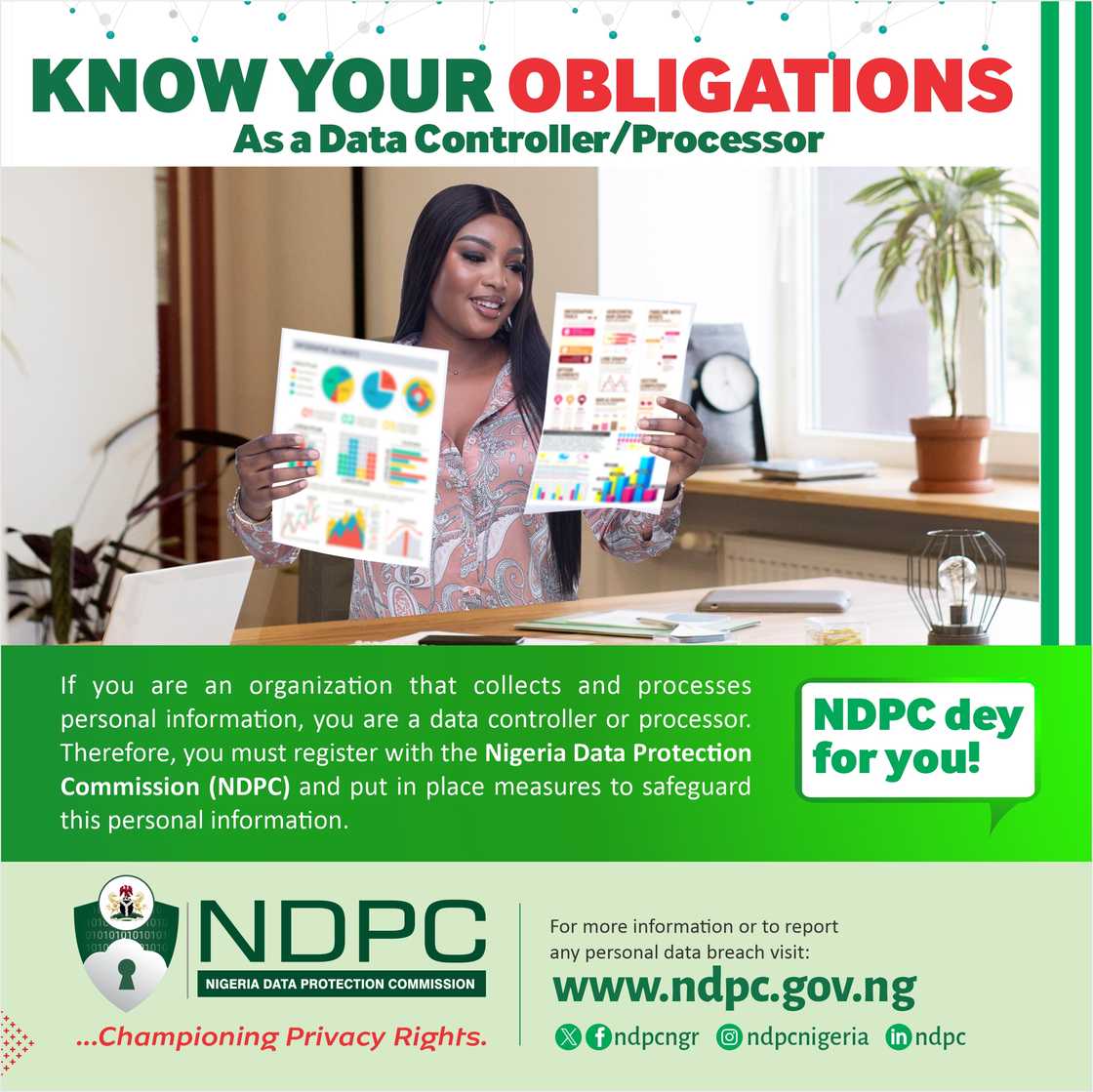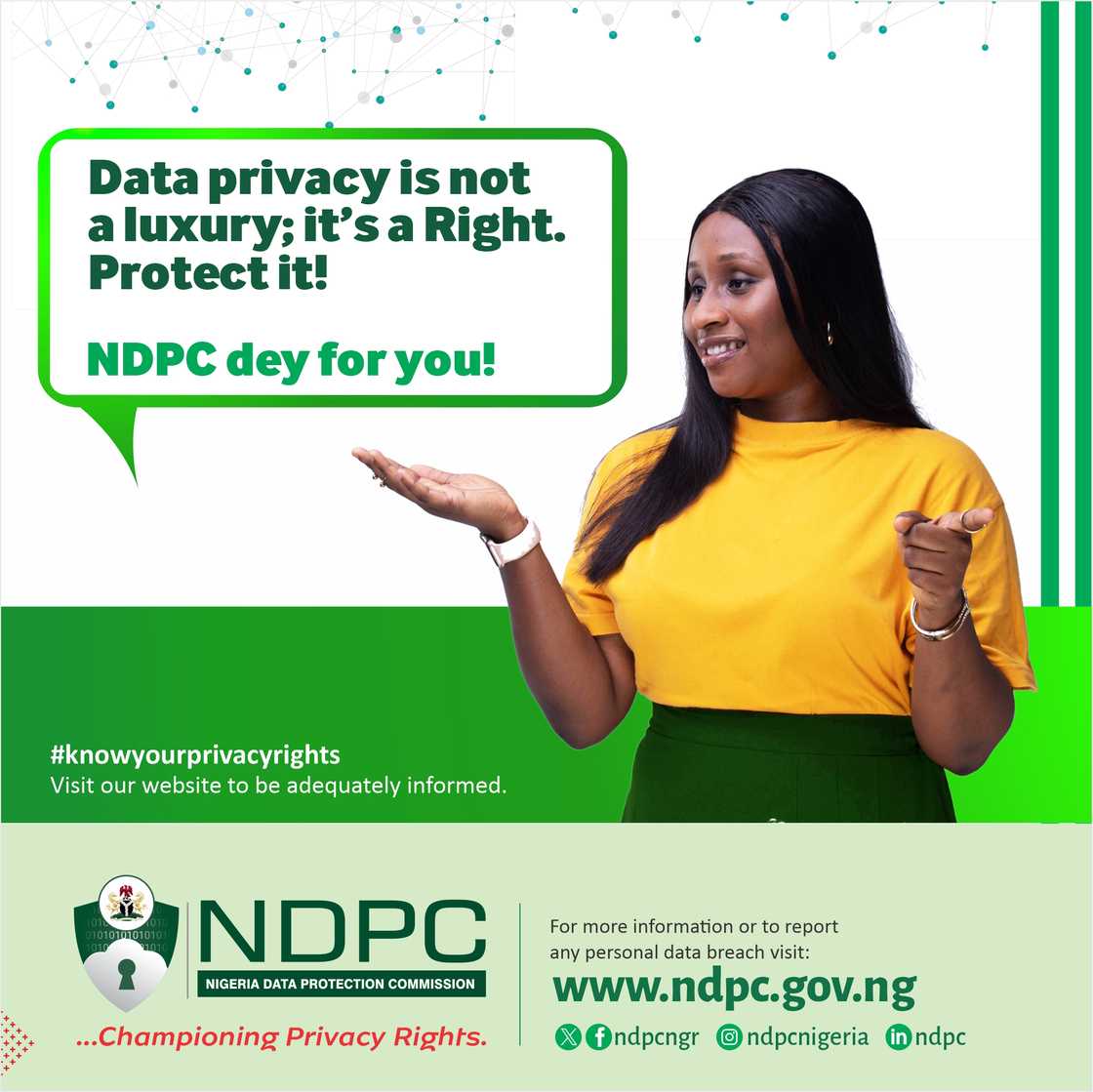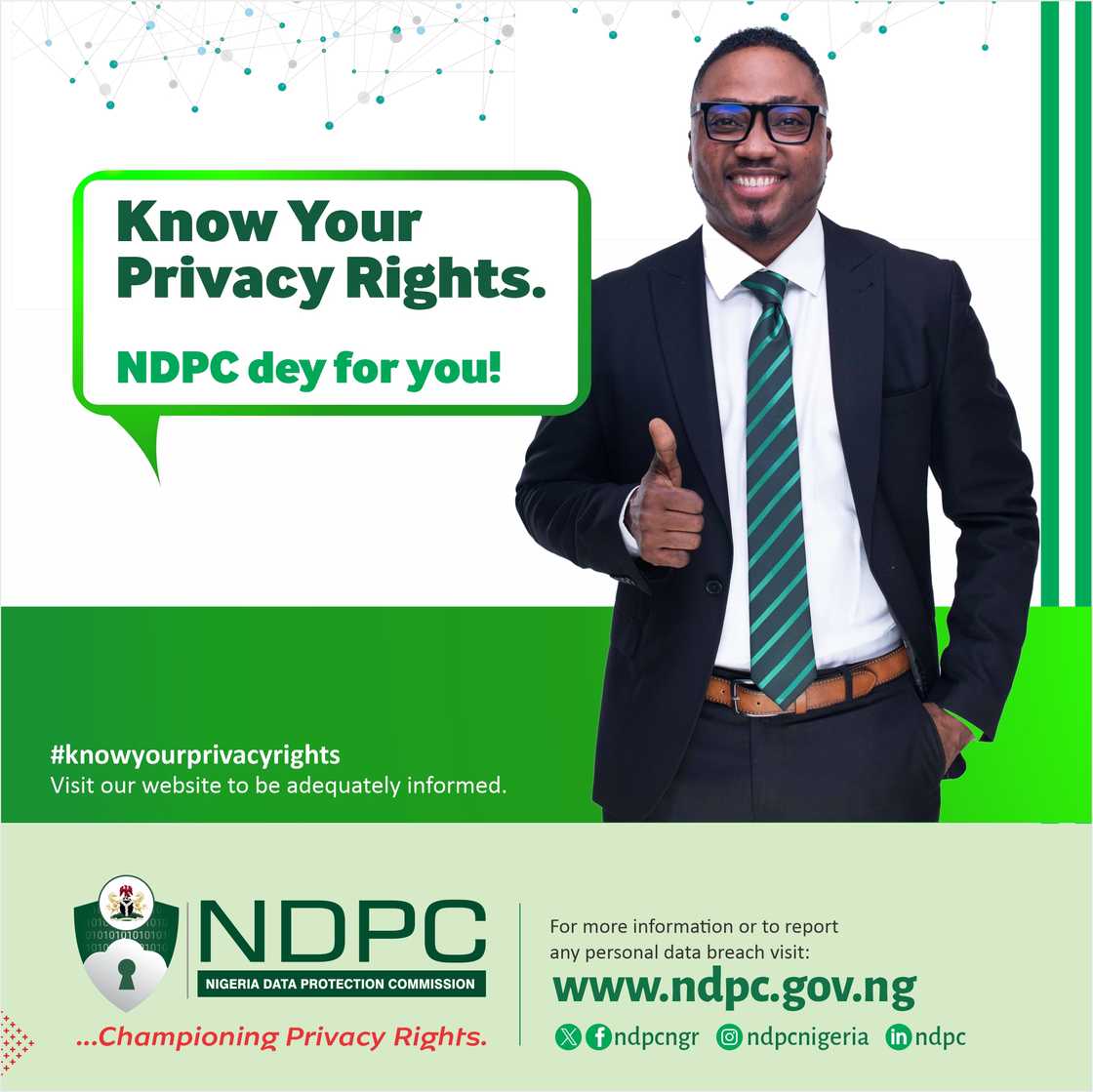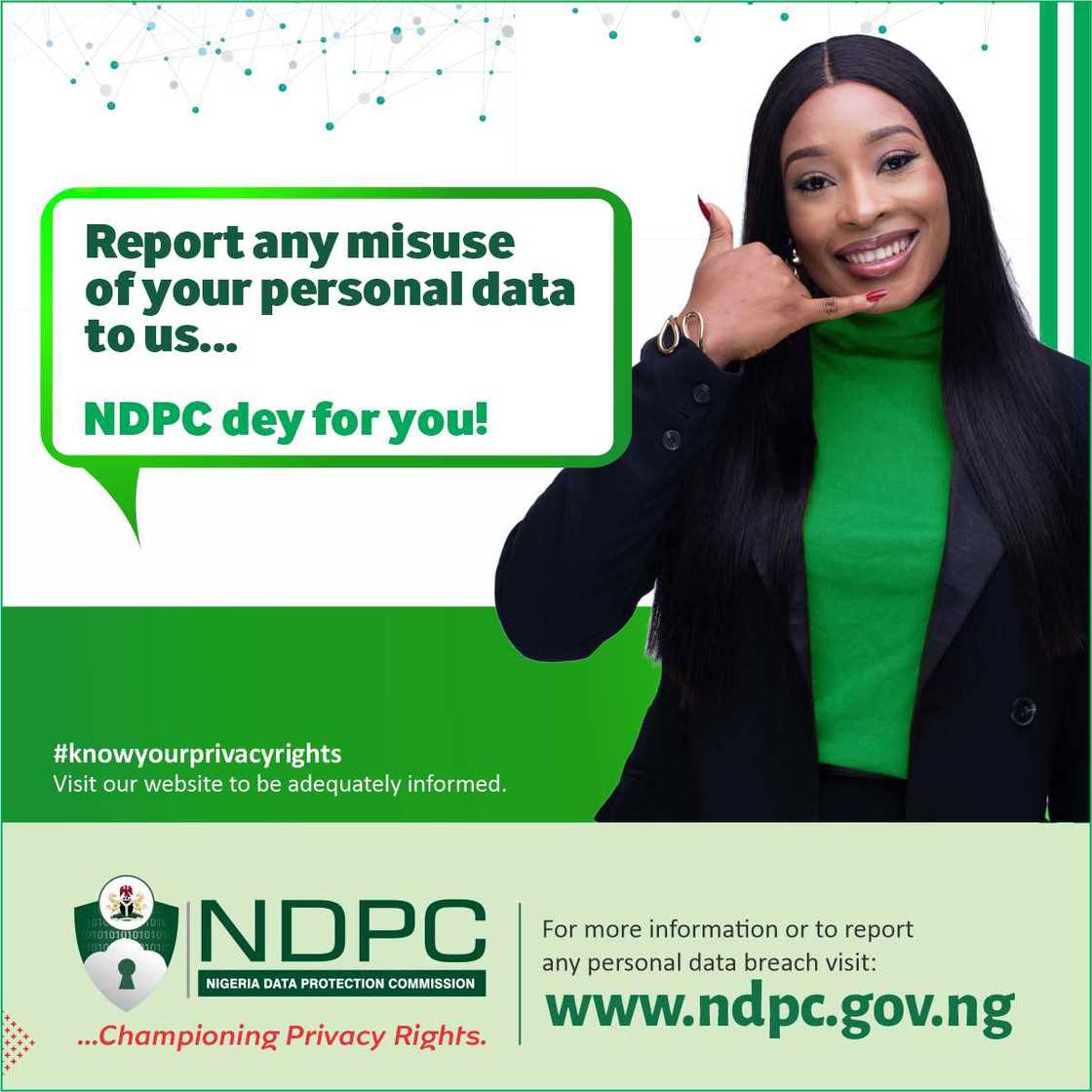Do you know that with just a few clicks of the button on your phone, whether you're surfing the net, shopping online, opening strange emails, downloading suspicious documents or clicking strange links, your data can be exposed to unwanted elements and cause serious damage to your life? Not many Nigerians are aware of their data privacy rights and how to keep their information secure.

The Nigeria Data Protection Commission (NDPC) is a regulatory authority responsible for enforcing data protection laws and ensuring compliance with data protection standards in Nigeria. NDPC aims to safeguard the privacy rights of individuals and promote responsible data management practices across various sectors.
In simple terms, data privacy is the protection of personal information from people who should not have access to it.
“Data is life” is a common saying among people who understand the importance of having information. Data in the wrong hands can cause a lot of damage including identity theft, financial fraud, unauthorized access to personal information and even death in extreme cases.
In this digital age, data has become increasingly vulnerable with people not being aware of their data privacy rights and taking the necessary steps to secure their personal information. With the rise in the availability of data, there is a heightened risk of breach and misuse.

List of some important data privacy rights under Nigerian law
1. Right to consent: You have the right to be informed about the collection, storage and use of your personal data.
2. Right to Privacy: This is enshrined in the Nigerian constitution and reinforced by the Nigerian Data Protection Act (NDPA). It protects people from unauthorized access of their personal information.
3. Right to access information: Individuals have the right to request access to their personal information that is held by organisations. They can obtain copies of their data and request for insight on how it is being used.
4. Right to rectification: Nigerians can request for correction to be made to inaccurate or incomplete personal data to help maintain an accurate record of their information.
5. Right to erasure: Nigerians can request for their personal data to be deleted if they withdraw their consent or when the data is no longer needed for the purpose it was collected.
6. Right to object: People can object to the way their personal information is being processed.
7. Right to lodge complaints: Subjects can lodge complaints with the Nigerian Data Protection Commission (NDPC) when their rights are being violated.

Tips to protect your data
1. Use strong passwords and enable two-factor authentication if possible.
2. Don’t fall for phishing attempts by avoiding clicking on suspicious links or downloading strange attachments.
3. Ensure a website is secure and don’t fill in personal information on unsafe sites especially when shopping online.
4. Review and understand website’s privacy policies.
5. Regularly check and update your privacy settings on your online pages and devices.
6. Most public Wi-Fi networks are not secure so when connecting, use VPN to conceal your internet connection data. Also avoid accessing sensitive information on them.
7. Back up your data on external devices.
8. Monitor your account’s activity.


Being aware of your data privacy rights is a necessity in this digital world and under the Nigeria Data Protection Act, 2023, it is illegal for organisations to process people’s personal data without proper registration. Failure to comply with registration requirements constitutes an offence punishable by law.
For more information on your data privacy rights or if you need guidance on the registration process, please visit the NDPC website at www.ndpc.gov.ng or direct inquiries to registration@ndpc.gov.ng.
PAY ATTENTION: Сheck out news that is picked exactly for YOU ➡️ find the “Recommended for you” block on the home page and enjoy!
Source: Legit.ng
















 English (US) ·
English (US) ·